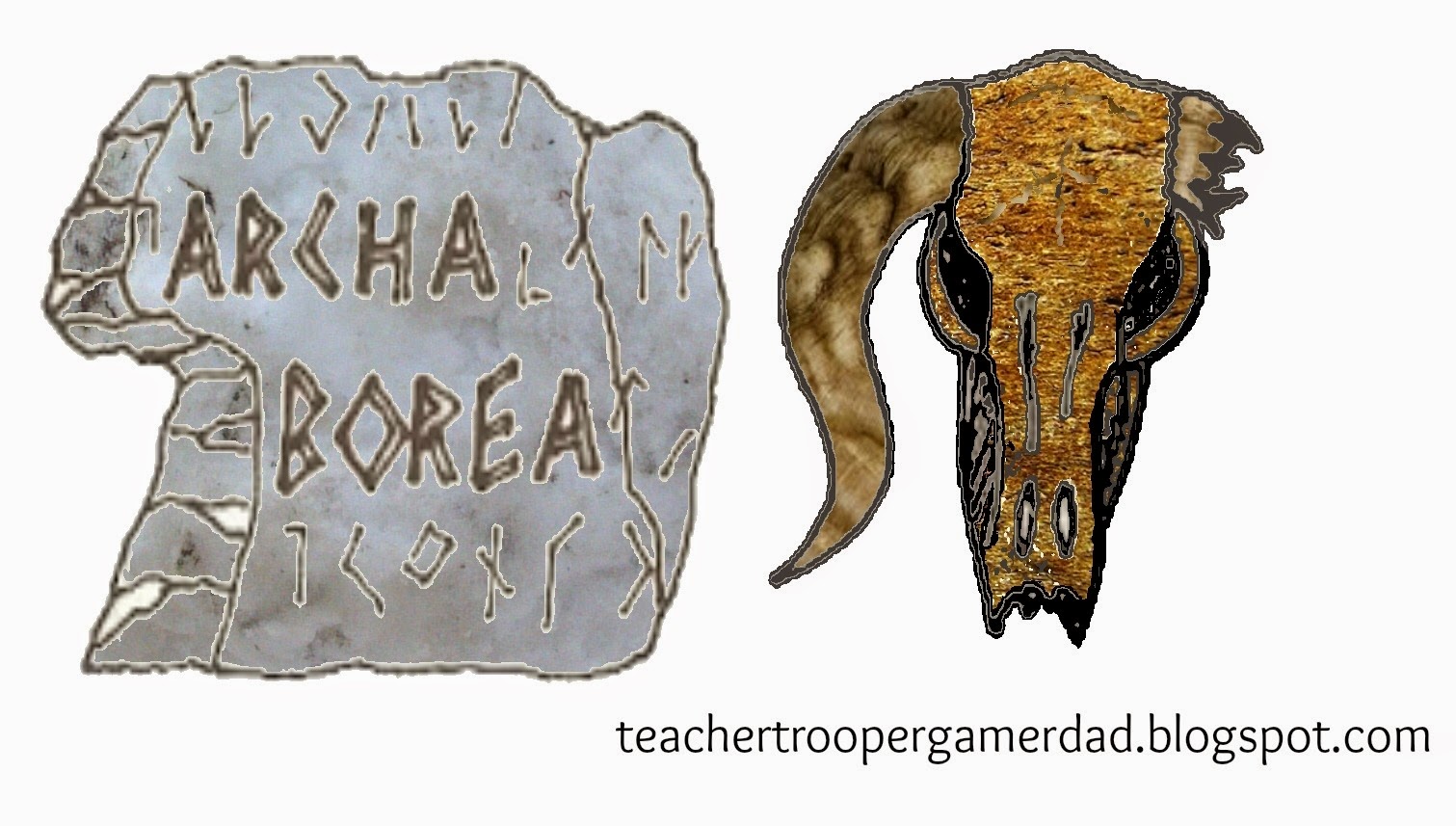By David
A little basic sociology
In the first part of this post I talked about the hooks, or points of relevance, distinguishing my created fantasy world--Archaborea--from other fantasy environments. I also mentioned how the method to my creation came from a series of articles called “Dungeoncraft,” by Ray Winninger. He had a short list of rules for creating successful worlds which I also choose to use in my process.
Rule #1: Never create more than you must.
Rule #2: Whenever you create something important, create at least one secret tied to it.
Setting the stage for my creation’s adventurers (the players,) I look at the second entry on my list of hooks: The Bad Guys Rule. The evil empire is alive and well on Archaborea. However, due to the nature of the environment (remember that grinning cactus?) even the tyrants have their limitations. So there will be a tyrannical, despotic government but it will be balanced out by the savagery of the natural flora and fauna. I am thinking I may give my heroes a choice to start in a small village under the rule of an ogre-lord “regional governor” or a small village in the wilderness (sort of a pioneer village surrounded by packs of predators and other natural hazards.) They will have a small, manageable homebase, but also some kind of instant challenge, either natural or political.
Along the way, I am aware of potential plotlines and adventure ideas. That is what this process really does, it helps to set things in place and spark ideas, stimulating my creativity. My hope is that my players will feed off of this creative energy as well and together we can build a compelling story within the game, resulting in fun for everyone.
Using rule #2, I have established that the evil rulers of the world (although called “ogre-lords”) are not actually ogrish. They will be beastly in appearance, looking more like minotaurs, with bovine heads and horns, and bulky, hirsute bodies--not fur-covered, just hairy. The secret of their heritage will be something I want the players to discover over the course of the campaign and may include other, unknown villains they will not expect.
My hook established the ogre-lords as conquerors in a war long ended. The length of time I am not sure of yet; somewhere between fifty and one hundred fifty years sounds about right. Enough time for society to have settled a bit, established some norms and traditions in the wake of war, but not so much time that no one remembers the conflict, perhaps lost a parent or grandparent. This being a fantasy realm, its also possible for some long-lived race to have members who actually fought in the war. The war will be a quasi-taboo topic: some want to forget and move on, some want to start it again, hoping for a better outcome.
The village homebase for my players will be a combination of races living and working together. This will allow for the players to be able to choose any race they wish. I don’t want to limit my player’s choices of a character too much because I will be limiting other things as a result of the environment. It is really all about balance, trying to balance what can and cannot be. The village itself will be small, not more than a few hundred at most, with roughly ten to twenty percent of that number belonging to the village militia or guard. When it is decided whether the village will be a pioneer village or an ogre-lord village then that will inform the disposition of the guard.
The village will also be relatively isolated because the nature of the world limits population centers. Nature plays a big role in this world; it will be as much of a challenge as some of the humanoid foes the players will face. A later post will cover this environmental aspect, but for now I will concern myself with some names and personalities the player characters may encounter: the leader of the village, the captain of the guard, a few townspeople (a tradesman, a shopkeeper or two, and maybe a couple farmers.) I will outline the village: a list of major buildings (in alphabetical order for ease of reference.)
Maps will come later, but next part of this series will be religion: god(s) and myths.


